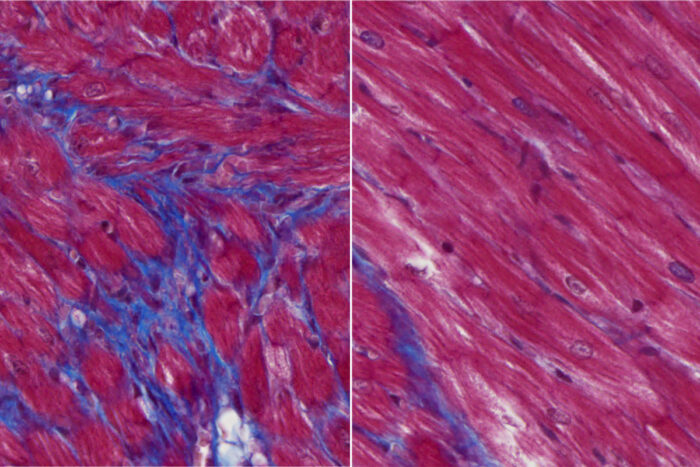Immunotherapy prevents heart attacks progressing to heart failure
Date: 4.11.2024
Scarring of heart tissue can be slowed but not stopped, and can lead to heart failure. But a new study has shown that an existing immunotherapy could stop scar tissue formation after heart attacks.
 First, team Washington University School of Medicine studied gene expression in 45 donated human hearts, including some that were healthy, some that were damaged by prior heart attacks and others that were chronically failing. From this, they discovered that a population called FAP+ fibroblasts contribute to the formation of scar tissue but not healthy, beating tissue.
First, team Washington University School of Medicine studied gene expression in 45 donated human hearts, including some that were healthy, some that were damaged by prior heart attacks and others that were chronically failing. From this, they discovered that a population called FAP+ fibroblasts contribute to the formation of scar tissue but not healthy, beating tissue.
Next, they set out to investigate whether these cells could be blocked. A signaling molecule called IL-1 beta was found to be key to the process of creating scar tissue in the heart. The researchers tested a monoclonal antibody that blocks IL-1 beta, and sure enough, treated mice showed fewer FAP+ fibroblasts, less scarring and better cardiac function.
Importantly, there are two monoclonal antibodies that are already approved by the FDA which can block IL-1 signaling. While these are currently used to treat inflammatory disorders, one was evaluated as a treatment for atherosclerosis – and may have incidentally provided evidence to back up its use in reducing heart scarring.
Zdroj obrázku: Junedh Amrute / WashU Medicine.























